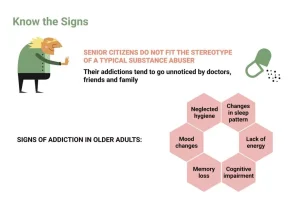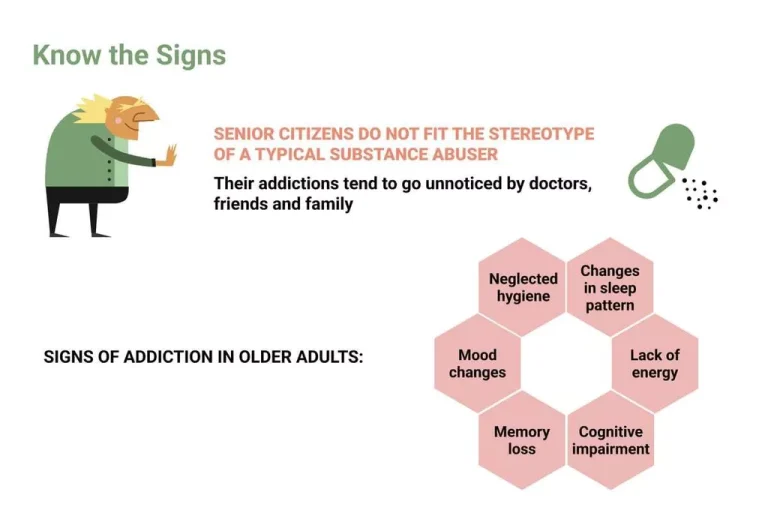
When individuals seek medical attention for alcoholism treatment, the withdrawal symptoms usually begin within the first 24 hours of stop drinking. For people who have been drinking heavily for a long period of time, or who have a history of alcohol withdrawal, the risks of withdrawal are higher. High blood pressure is one of the more serious potential complications of alcohol withdrawal.
Free Healthbeat Signup

After alcohol detox, individuals transition into ongoing treatment to address the psychological and behavioral aspects of addiction. Detox alone does not guarantee long-term sobriety, and without follow-up care, the risk of relapse remains high. As this can trigger withdrawal symptoms, it’s important to detox under the care of an alcohol detox facility that can provide 24/7 supervision. Some detox facilities provide medication to help ease both the cravings and the withdrawal symptoms. A rising number of people are interested in learning more about the potential link between alcohol withdrawal and high blood pressure, among the many other health issues it raises. We’ll unravel the connection between alcohol withdrawal and hypertension, revealing the underlying mechanisms that facilitate changes in blood pressure throughout the process of alcohol withdrawal.

Effects of alcohol withdrawal on blood pressure in hypertensive heavy drinkers
As a licensed therapist, White recommends starting with a 30- to 90-day break to get a clear picture of your relationship with alcohol. “This period allows you to identify triggers and develop new coping mechanisms,” she explains. She outlines that it’s about digging into whether those triggers are emotional, tied to your environment, linked to certain exposures or even connected to certain times of the day or year.
Related Articles
As your body and mind start to adjust to sobriety, you’ll enter the early recovery phase. Your sleep patterns will be better, you’ll notice improved appetite, and your energy levels will be higher. It will also be easier to concentrate as your brain recovers from the effects of alcohol. The first few hours are when the initial withdrawal symptoms set in as your body attempts to adjust to the absence of alcohol. Nutritional deficiencies and dehydration can result from alcohol withdrawal. Sustaining adequate nutrition and hydration is essential to helping the body through the withdrawal phase.
She notes that alcohol is a depressant, and our body produces cortisol and adrenaline to counteract its effects. This means that as you sip to find relief from anxiety, you are actually reinforcing a loop that keeps you tethered to the emotions you’re trying to outrun. White shares that drinking to cope with negative emotions is one of the strongest predictors of developing alcohol use disorder. Every glass chips away at your brain’s natural ability to manage those feelings. For decades, alcohol was sold as a social aid, a stress reliever and even a heart-health enhancer, often praised in the Mediterranean diet for its supposed benefits when enjoyed as a daily glass of wine. “Today, the conversation is shifting, thanks to mounting evidence showing alcohol’s direct link to cancer, liver disease and even mental health problems.

“For decades, cigarette smoking was socially acceptable, with little awareness of the Halfway house damage it was doing,” says Christine Maren, D.O., a board-certified physician specializing in functional medicine. Fast-forward to today, and we are facing a similar wake-up call—this time with alcohol. These limitations make it hard to know how much to rely on studies that find health risks (or benefits) to alcohol consumption.
- In contrast, hallucinations appear within 24 hours and include auditory, visual, and tactile hallucinations.
- Medications help alcohol detox by reducing withdrawal symptoms such as anxiety, seizures, and cravings, making the process safer and more manageable.
- It’s estimated less than 10% of people who have an alcohol use disorder receive treatment for their condition.
- Similarly, nicotine and illicit recreational drugs such as cocaine and synthetic opioids affect blood pressure and heart rate negatively, leading to potential long-term cardiovascular issues.
This process is also sometimes called alcohol withdrawal because the body responds to the abrupt cutoff with withdrawal symptoms. Hypertension in detoxified participants was related to alcohol-independent high blood pressure or to a long-lasting alcohol-induced derangement of the mechanisms that regulate blood pressure. That being said, scientists conclude that complete alcohol abstinence must be recommended to all hypertensive alcoholics. The study showed that alcohol withdrawal-induced transient hypertension was harmless, and abstinence leads to complete recovery from hypertension. More precisely, abstinence from alcohol through successful alcohol detox and treatment can help you recover from high blood pressure.

In addition, alcohol may reduce the risk of one condition (such as cardiovascular disease) while increasing the risk of another (such as cancer). So it’s hard to predict who might actually benefit and who may be harmed more than helped by alcohol consumption. And the balance of risk and benefit likely varies from person to person, based on individual bp alcohol factors such as genetics and lifestyle factors. While alcohol withdrawal can have severe effects on your blood pressure, it’s important to remember that recovery is possible.
Individuals experience severe symptoms such as tremors, hallucinations, seizures, confusion, and extreme agitation, making medical supervision required for safety and effective symptom management. While alcohol may cause a temporary drop in blood pressure due to its vasodilating effects, the overall impact is negative. Regular and heavy alcohol consumption increases blood pressure over time, putting individuals at a higher risk for hypertension, heart disease, and stroke. A study published in Alcohol and Alcoholism examined 147 patients undergoing alcohol withdrawal and found that about 50% experienced a mild increase in blood pressure within the first 24 hours. However, after 18 days, their blood pressure levels had dropped by an average of 10 points, suggesting that long-term abstinence can significantly lower blood pressure. Upon entering the residential program a thorough intake interview will be conducted.
There, it exerts a depressant effect, influencing mood, motor skills, and cognition. Meanwhile, it also impacts the body’s regulatory systems for vascular tone, fluid balance, and hormone release. Activities are planned using a process that links identified needs with desired results. Harper volunteered for a five-year term on her medical school’s admission committee, has given numerous presentations, and has taught medical students and residents.
